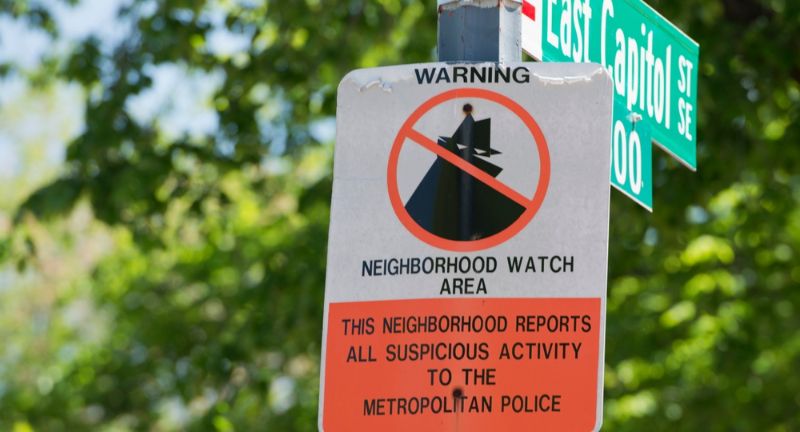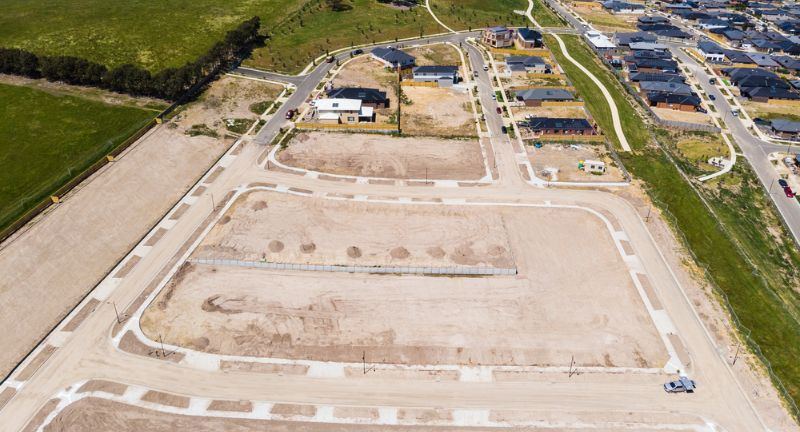REAL ESTATE
25 Crucial Things to Rethink Before Moving to a New Home
Published
6 months agoon

Shutterstock
Moving to a new house can seem like an exciting adventure, but it’s a decision that requires careful consideration. Beyond packing boxes and planning your new space, there are many factors that could impact your move in ways you might not expect. From financial readiness to the emotional toll, each element of your relocation should be evaluated to ensure a smooth transition. Whether you’re moving across the street or across the country, thinking through all aspects of your decision can help avoid unnecessary surprises. In this guide, we’ll explore 25 important things to reconsider before you make your move.
Financial Readiness

Shutterstock
Moving is more than just packing boxes and finding a new place to live; it can significantly affect your finances. Beyond the upfront costs such as deposits, real estate agent fees, or movers, you need to be prepared for the ongoing costs of your new home. Mortgage or rent payments, utility setup fees, and any necessary repairs or upgrades can add up quickly. Make sure your budget is ready to handle these expenses before committing to the move.
The Housing Market

Shutterstock
The housing market can have a huge impact on whether now is the right time for you to move. Prices can fluctuate dramatically, so it’s important to research current market conditions. In a seller’s market, you may find it harder to get a good deal on a new home, while in a buyer’s market, you could find more favorable prices. Timing your move when the market is in your favor can save you thousands in the long run.
Hidden Costs

Shutterstock
Hidden costs can sneak up on you during the moving process. It’s easy to underestimate the additional expenses, such as utility hookup fees, buying new furniture, or even repairs you didn’t notice during the home inspection. Also, don’t forget potential property taxes, homeowners’ association fees, and home insurance. Preparing for these hidden costs can prevent financial stress after the move.
Job Stability

Shutterstock
Moving to a new home can affect your job situation, especially if it involves relocating to a new city. It’s crucial to consider whether your job is secure and if your income will support your new living situation. If you anticipate a job change, make sure you have a solid plan for maintaining your financial stability. Moving without job security can put you in a precarious position, especially with a new mortgage or rental lease hanging over your head.
Commute Time

Shutterstock
A longer commute might not seem like a big deal at first, but it can take a serious toll on your work-life balance over time. Before you move, make sure to calculate how long it will take you to get to work, school, or any other important destinations. Increased time in traffic or public transit can reduce the time you have for yourself and your family. This added stress could make you regret moving, especially if the commute is significantly longer than your current one.
Local Schools

Shutterstock
If you have children or are planning to in the future, the quality of local schools is something you should reconsider before making a move. Research the school districts in the areas you’re considering and ensure they meet your standards for education. Proximity to good schools can also affect the long-term value of your home. Homes in strong school districts tend to hold or increase their value, making this a smart long-term investment.
Neighborhood Safety

Shutterstock
Safety is a key factor in deciding where to move. Even if a home seems perfect, living in an area with high crime rates can make you feel uncomfortable and unsafe. Use online tools to check local crime reports and speak with potential neighbors to get a sense of the community. A safe neighborhood not only offers peace of mind but also helps maintain your home’s value over time.
Proximity to Amenities

Shutterstock
Living near amenities such as grocery stores, hospitals, parks, and restaurants can make life more convenient. Moving too far from these essentials can lead to longer drives and added stress, especially in emergencies. Consider what amenities are important to your daily routine and how far you’re willing to live from them. Having nearby conveniences can improve your quality of life and help you settle into your new neighborhood more easily.
Space Requirements

Shutterstock
Think carefully about how much space you actually need. While a larger home might seem appealing, it often comes with higher costs and more maintenance. On the other hand, downsizing might save you money but could lead to feeling cramped, especially if your family grows or your lifestyle changes. Reassess your current and future needs before deciding whether the new home’s size is right for you.
Property Maintenance

Shutterstock
Owning a home, especially one with a large yard or many features, means taking on significant maintenance responsibilities. If you’re not prepared for the time and money required to upkeep a larger property, reconsider whether a smaller, more manageable space is a better fit. The charm of a big yard or extra rooms can fade quickly if you’re constantly dealing with repairs and upkeep. Think about whether you have the resources and willingness to maintain the property long-term.
Weather and Climate

Shutterstock
Different regions come with different weather patterns, which can have a major impact on your comfort and lifestyle. Moving to an area with harsh winters or excessive humidity may require more than just adjusting your wardrobe—it could affect your health, mood, and daily activities. Additionally, homes in areas prone to natural disasters, such as floods or wildfires, may require extra precautions and higher insurance costs. Consider how well you can adapt to the new climate before making the move.
Local Culture

Shutterstock
Every region has its own unique culture, which can greatly influence your overall satisfaction with your new home. It’s important to reconsider whether you’ll feel comfortable and welcomed in the community. Cultural differences, local traditions, and even social norms can take time to adjust to, especially if you’re moving to a new city or country. Take the time to learn about the local vibe and ensure it aligns with your values and lifestyle before you commit.
Access to Healthcare

Shutterstock
Access to quality healthcare is essential, especially if you have children, elderly family members, or specific medical needs. Before moving, reconsider how far the nearest hospitals, doctors, and urgent care facilities are from your potential new home. Long travel times in emergencies can be inconvenient and potentially dangerous. Choosing a location with accessible healthcare options can give you peace of mind and improve your overall quality of life.
Cost of Living

Shutterstock
Cost of living varies greatly depending on where you move, and it’s important to reconsider whether you can afford the new location. Daily expenses like groceries, transportation, and utilities may be higher in your new area. Research how much your lifestyle will cost in your desired location, and adjust your budget accordingly. Failing to account for these changes can lead to financial strain and reduce your enjoyment of the new home.
Transportation Options

Shutterstock
If you rely on public transportation or plan to use it, reconsider how accessible and reliable it is in your new area. In some locations, public transport may be sparse, forcing you to rely on personal vehicles, which can increase costs and add stress. Conversely, moving to an area with excellent public transit options can make commuting easier and more economical. Evaluate your transportation needs and preferences before committing to a move.
Employment Opportunities

Shutterstock
If you’re considering a move and might need to find a new job, reconsider the local employment opportunities. Some areas offer more job prospects in specific industries, while others might be more challenging. Look into job availability in your field before deciding to move, and ensure the area aligns with your career goals. A lack of suitable jobs in the area could force you into a difficult situation or limit your professional growth.
Social Network

Shutterstock
Moving can often mean leaving behind your established social circle. If friends and family are important to you, reconsider how the move will affect your support system. Building a new social network in a new place takes time, and some people find it more challenging than expected. Consider whether you’re ready for this transition or if staying close to your current support system is more important.
Community Feel

Shutterstock
Every neighborhood has its own unique feel, and it’s important to reconsider whether your new community aligns with your preferences. Do you want a close-knit neighborhood where people know each other, or do you prefer more independence and privacy? Research the area, talk to potential neighbors, and spend time in the community to get a sense of the environment. Feeling comfortable in your community can make a significant difference in how quickly you adjust after the move.
Resale Value

Shutterstock
Even if you’re not planning to sell anytime soon, it’s wise to reconsider the resale value of your new home. Factors like the neighborhood, nearby amenities, and local schools can affect the future value of your property. Homes in less desirable areas may be harder to sell or may not appreciate in value over time. Keeping resale value in mind when buying ensures you make a smart investment for the long term.
Pets

Shutterstock
If you have pets, it’s crucial to reconsider how well they’ll adapt to the new environment. Make sure the home and neighborhood are pet-friendly, with enough space for them to live comfortably and access to nearby parks or walking areas. Additionally, consider whether there are veterinarians or pet care services close by. A home that accommodates your pets’ needs can make a big difference in their well-being and your peace of mind.
Homeowner’s Association (HOA)

Shutterstock
Many neighborhoods, especially in planned communities or developments, have a Homeowner’s Association (HOA). Reconsider whether you’re willing to abide by the HOA’s rules and pay their fees. While HOAs can help maintain property values and ensure community standards, they can also impose restrictions that limit your freedom, like rules about home modifications or landscaping. Ensure that any HOA aligns with your lifestyle before buying in an area governed by one.
Local Taxes

Shutterstock
Local taxes, including property, sales, and income taxes, can vary widely depending on where you move. Reconsider the overall tax burden you’ll face in your new area and how it will affect your finances. High property taxes can significantly increase the cost of owning a home, while low taxes might make an area more attractive. Understanding the local tax landscape helps you plan your budget more effectively.
Renovation Needs

Shutterstock
Some homes might look affordable at first, but reconsider whether they need costly renovations. From updating old kitchens to fixing major structural issues, these repairs can add up quickly in both time and money. Make sure you factor in the cost of any updates when deciding if the home fits your budget. A lower-priced home with significant renovation needs could end up costing more than a move-in-ready option.
Future Development Plans

Shutterstock
Before settling on a new home, reconsider any future development plans in the area that might affect your quality of life or property value. New construction, roads, or commercial projects could bring noise, traffic, and changes to the neighborhood vibe. Research local zoning laws and any planned developments to ensure you’re not caught off guard. Knowing what the future holds for the area can help you make a more informed decision about your move.
Emotional Impact

Shutterstock
Moving isn’t just a physical transition; it’s an emotional one too. Reconsider how the move will affect you and your family mentally and emotionally. The process can be stressful and overwhelming, from leaving behind familiar surroundings to adjusting to a new environment. Being emotionally prepared for the transition can make the move smoother and help you settle into your new home with fewer challenges.
Conclusion

Shutterstock
Moving to a new house is a major life decision, and considering these 25 factors can help make the process more manageable. Whether it’s financial, emotional, or practical, every detail contributes to the overall success of your move. Taking the time to thoroughly think through these aspects will ensure you are making a well-informed decision that aligns with your long-term goals. In the end, a smooth and thoughtful move will set you up for a happier and more comfortable experience in your new home. Keep these considerations in mind to make your next move a positive one.
ADVERTISEMENT - CONTINUE BELOW
Related Topics:

About Money+Investing
Money + Investing provides our community with the latest personal and business finance news from around the world. We publish money saving and earning tips to help you make smartier investing decisions. We're inspired by exploring and providing new ways for our audience to achieve financial freedom. We can't wait to share all of our exciting deals, guides and reviews to help you live your financial life to the fullest.
More Money + Investing
-


The Small Town Boom: 30 Rural Spots Attracting Big City…
-


30 U.S. Cities Where Housing Prices Are Dropping Fast
-


25 Winter Hotspots for Snowbirds Who’ve Outgrown Florida’s Retirement Vibes
-


Thinking of Becoming a Real Estate Agent? Here Are 25…
-


Top 25 Family-Friendly Cities You’ll Want to Move To
-


24 Hot U.S. Markets for Flipping Houses This Year
-


30 U.S. Cities That Offer the Best Value for Working-Class…
-


30 Healthiest Places in America to Retire
-


Top Mistakes Homeowners Make When Selling—And How to Avoid Them
-


15 Reasons Why Baby Boomers Are Refusing to Downsize
-


America’s 27 Most Expensive Real Estate ZIP Codes
-


29 Idyllic Places Retirees Are Flocking to in the US